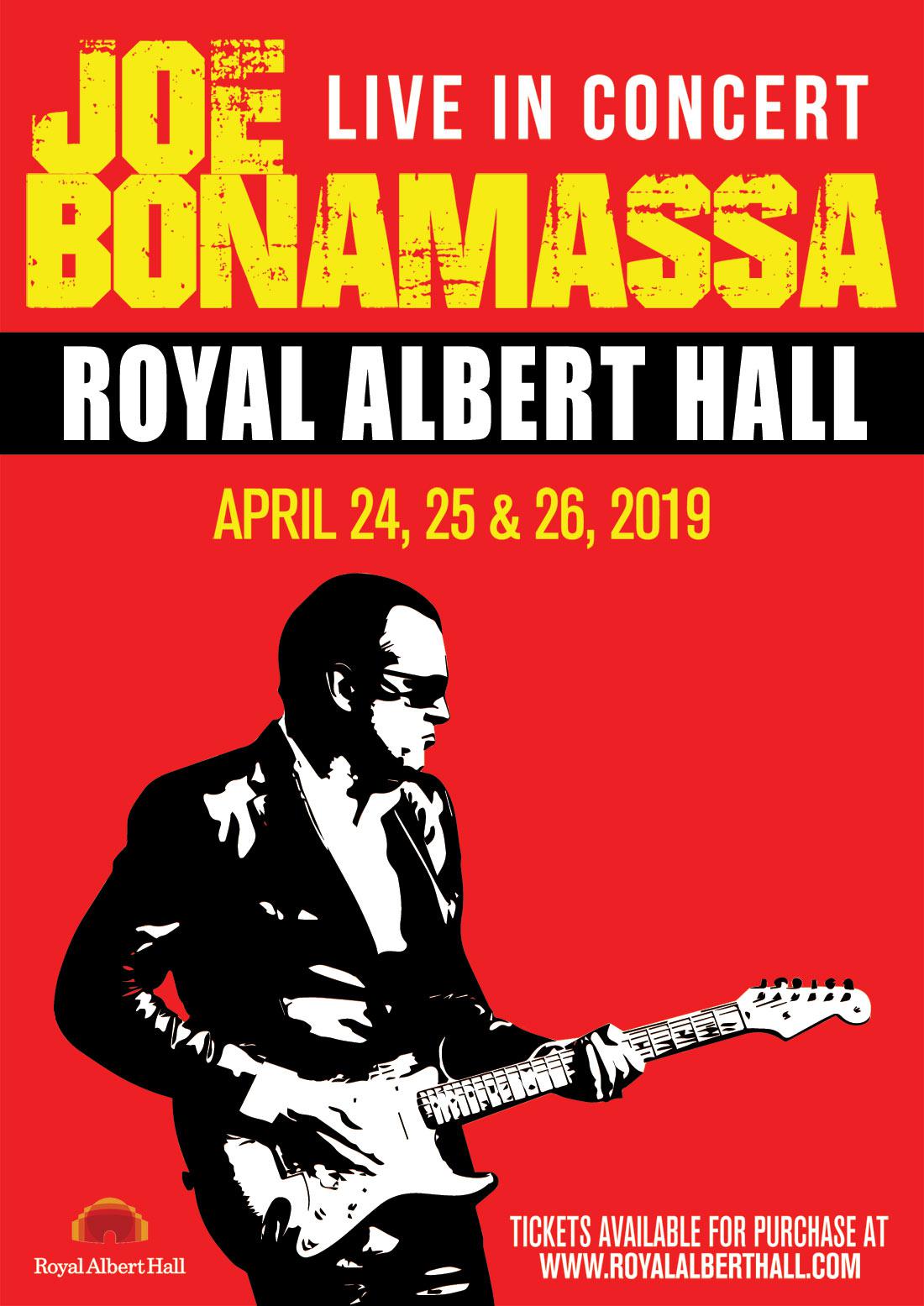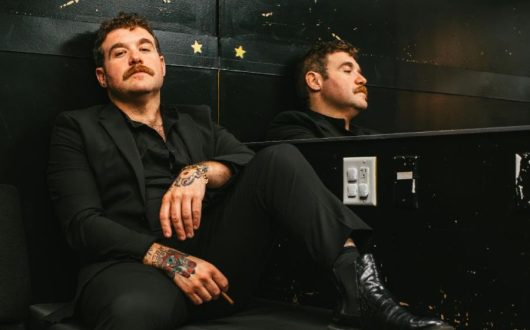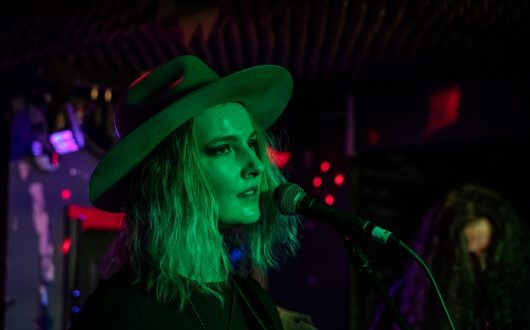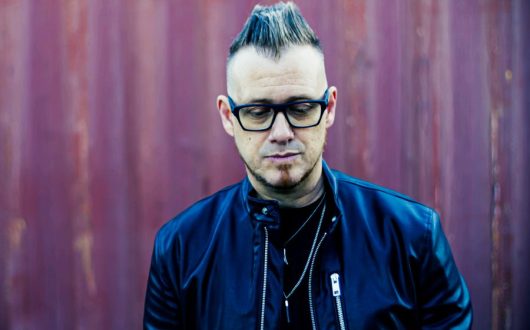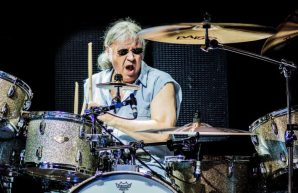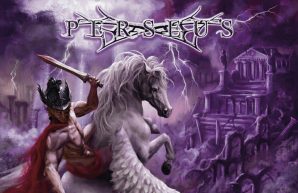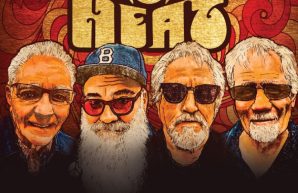Interview by Adrian Hextall
Reese Wynans has been a member of the Second Coming, which, from November 1968 to March 1969 also included two future and founding members of The Allman Brothers Band: guitarist Dickey Betts and bassist Berry Oakley.
In 1973 he played with Captain Beyond and was on the album Sufficiently Breathless. He also played with The Explosives along with Freddie Krc and Cam King.
His major exposure came in 1985 playing with Stevie Ray Vaughan & Double Trouble, playing keyboards on Soul to Soul and In Step. Wynans performed with the group until Vaughan’s death in 1990.
Fast forward to late 2014 and early 2015, Wynans was inducted into the Musician’s Hall of Fame, Austin City Limits, and the Rock and Roll Hall of Fame all as a part of Stevie Ray Vaughan & Double Trouble.
In 2015 he then became the touring keyboard player for blues rock guitarist Joe Bonamassa, replacing Derek Sherinian. Wynans had previously played keyboards on Bonamassa’s 2014 album Different Shades of Blue and his “Muddy Wolf” tour, where Bonamassa played songs originally recorded by Muddy Waters and Howlin’ Wolf.
Joe is in the producer’s chair for Reese’s album, ‘Sweet Release’ his first solo exercise in a career spanning some 60 years. It’s about time he got round to it so we had a chat with him to find out why the delay….
AH: I was listening to your album, and I have to say I started as I normally do as a reviewer, thinking I can hear this person in that one, and I can hear this influence in there and this and that. But then I realized I’ve actually got it almost back to front. In that, I suddenly realized, I’m not hearing other people in your music. I’m suddenly realizing how much I’ve heard you in other people’s music. And that’s probably the truth, isn’t it?
RW: Well, I’ve been lucky enough to work with a lot of wonderful people over the years. So yeah, you’ve probably heard my music, heard my sound with Buddy Guy, with Los Loney Boys, with Delbert McClinton, with Stevie Ray Vaughan and Double Trouble, and any number of other folks that I’ve worked with all through the years. I’ve done a lot of records. You hear what I sound like on this record, and if you could hear that, then yes you can identify to a lot of other things and say, “Oh, that must’ve been him,” and it very well could’ve been. Because it’s a long discography.
AH: Oh, definitely, yeah. And it’s almost a case of, you can start in your head and picture the family tree, as this whole thing sort of branches out, like a mind map, or something.
RW: Fabulous that you’re saying that. My daughter was saying the other day, “Why don’t you get a music tree, start out with– Name all the musicians that you’ve worked with and where they went and where you went along the line.” It would be an interesting project. I’ve just now thought of it, she just reminded me of that and that’s something I want to get together.
AH: Rolling all the way back, to kind of the beginning, when you first started, I chatted not so long ago to Doyle Bramhall– Who of course, you’ve got playing on this album.
RW: Doyle is doing– Is innovative and creative music as there is in the blues today. I love all the stuff that he does.
AH: Like you, he was mixing it up with different artists as well, on his latest album. And chatting to him, we actually got back to what he was doing as a child, and why he kind of veered down the path he did. And I would imagine that must’ve been similar for you. Who did you grow up with? How did your influences first appear?
RW: Well, I was a classical trained as a youngster and the first piano– Rock ‘n roll piano player I heard was Jerry Lee Lewis. I loved Jerry Lee Lewis, I got all of his records, I thought he was great. Another I heard was Jimmy Smith, “Walk on the wild side”, and then I heard The Rascals’ Felix Cavalier. The way he played on “Good Lovin’ ” and all those terrific Rascals songs. And I loved the piano with Chuck Berry and I loved Little Richard songs. And so, all those people were influences to me at a young age. I didn’t start playing in bands until I was in college, and we worked up some Zombie songs, I was a big fan of Rod Argent at that point. Later on I became a fan of Ray Manzarek with The Doors, I thought he was very creative. I’ve liked all sorts of people, all the rock ‘n roll guys influenced me, either in a good way or a bad way, one way or the other, as I’ve tried to figure out who I am along the line. Even when I was in Captain Beyond as a rock band, as a psychedelic rock band, I would try to throw a little bit of blues in there too. I think I always had that in the back of my mind.
AH: And is that because you’ve heard it a lot as you were a child?
RW: I just felt that. No I didn’t hear it a lot as a child, but I just– That’s the way I think, that’s just my roots and just the way I felt things.
AH: Now interestingly a lot of blues players would always say, it’s not what you’ve heard, it’s what you feel. I would imagine– And of course, it comes from the heart, doesn’t it?
RW: It’s interesting about blues isn’t it? A lot of people say, well the blues in Chicago sounds like this, the blues in Texas sounds like that, the blues of California sounds like this and in England it sound like this. Everybody plays it a little different, I think there is something to be said for the different types of blues, the different locals. But I think that’s kind of an over-generalization too. I think, you can go down– Like you said, it comes from the individual’s heart, how they feel it, how they want to play with their band, how the different musicians embrace it, how they accompany it, how they direct it. You know I was lucky enough to work with some pretty decent blues players when I started out. A man named Jim Roberts, was one of the first people I played blues with, and he had this really cool style. I love the drummer we had, Chris Nielson played a great shuffle. Another guitar player I started out with Joe Bill Loudermilk, had a really nice blues style. So, I just liked that and I always say I’ve liked it.
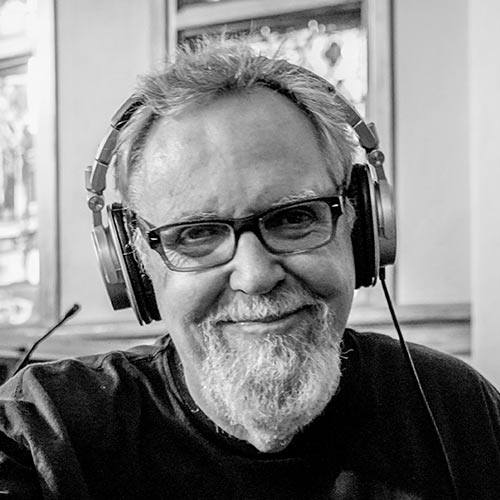
AH: Wonderful. You mention on the keyboard and the piano side of things, Rod Argent and The Zombies. Now we spoke to Colin Blunstone, probably no more that five or six weeks ago. We’ve got an chat coming up with Rod in about a week.
RW: Is that right? Well I hope you have mentioned that I’m a big fan of his and always have been. I’d love to meet him sometime. I think Rod Argent played electric piano on some of his earlier songs, “She’s not there”, “Tell her no” and some of those songs. He was so fluid with his solo, I always thought he was the heart and soul of that band. One of the first keyboards I ever got, I wanted to play just like him.
AH: Now, it has taken you so long to do your own album, as opposed to playing on other peoples’, is that workload? Or did somebody just finally convince you to do it?
RW: Well I have to admit people were not lining up at my the door begging me to make a record. But, when I joined Joe Bonamassa, I had been sitting in on albums, being a studio musician for 15 years or so, and I just had– Something told me I just wanted to get it back up out on the road, I want to play in front of people again. It was great, it was terrific travelling around the world again, playing the blues in front of people. I loved doing it, I still love doing it. But it occurred to me that maybe I’m playing pretty well right now, maybe in 15 years– 10 or 15 years I won’t be playing so well. Who knows what’s going to happen. So when you get to be a certain age, you want to put something down and have something with your name on it.
So, I think that, that just didn’t occur to me until these days, and working with a fantastic guy like Joe Bonamassa, he offered to do it. He offered to produce it, I hadn’t talked him into producing it. His record label is putting it out, so I decided to take that opportunity and go ahead and do this.
AH: I mean, it’s Joe’s first production job as well, isn’t it?
RW: And I hope not his last, because he is an excellent producer. He came up with great ideas, one after another. Wonderful song selection, great ideas for arrangements, instrumentation, which guitars to use, what keyboards to use, who to get to sing on. He made great choices all along the line.
When he makes his own records, he uses his producer, it’s Kevin Shirley. And they have the kind of dialogue, were they talk about– They co-produce everything, it’s really a co-producing job with those guys.
And I have to say one other thing about Joe, while we’re talking about him. What is it about him? His records are good– Every record he makes goes to number 1, right now I think he has three records in the Top 10. Seems like everything he touches these days is golden. It’s just his time right now.
AH: Yeah, definitely. And it doesn’t matter whether it’s solo, if it’s collaborative, in the likes of Beth Hart for example. There’s a pocket of people in the world that want that bit of Joe, this bit of Joe, that bit of Joe. I mean for me, my favorite Joe is the one that’s with Black Country Communion.
RW: A lot of people love that Joe.
AH: Yeah, because it’s the more rock infused Joe, than the of blues infused Joe. But then again, I can sit back on a Sunday morning and listen to “Black Coffee”, with him and Beth. Fabulous.
RW: So, I want to know, why is he such an angry guy? [laughing] Actually, he is not an angry guy at all, he is a terrific guy.
AH: He is one of the few artists in the world that we are seeing that level of progession in these days.
RW: Absolutely leading the pack, in the blues field I think.
AH: Definitely. Which can only be good for the scene, because for me I always thought the blues might’ve finished in the 50’s, 60’s at the most and then you see this– And then people like Joe reinvigorated it. And then all the musicians coming out these days that are playing blues-rock. Wonderful.
RW: Look at his coming, he’s doing well now, besides Joe, Gary Clark Jnr is doing great. Doyle Bramhall is doing fantastic. I love the Tedeschi Trucks Band, not exactly a blues band but they sort of have that blues-y feel in the things that they do.
AH: Well they’re on Doyle’s latest album, aren’t they?
RW: You know, I was lucky on this record, I got almost everybody that I’ve wanted to have on this record. The one person– two people that were unavailable was, Susan and Derek. I would’ve loved to have them both play. They’re just busy making their next records, so it just didn’t work out.
AH: Now you’ve mentioned the number of people– I mean the list quite frankly is unbelievable. I mean that’s the list of artists on your album.
RW: Couldn’t have done without everyone of them, every single one of them.
AH: But to be able to pull in effectively that many favors– That just shows the camaraderie, both in with the musicians that you play with, but also how many people you know and you’ve worked with.
RW: Next record, if I do another record I’m going to get Buddy Guy to come play something on it, because I love him. And hopefully we’ll get Susan and Derek on the next one too.
AH: But for you, did that sort of make you click and realize, all of these people just said yes just like that, it was so easy to get them. I mean it’s an impressive list.
RW: You know, I’m a lucky guy, I’m a thankful guy. I’ve made a lot of friends down through the years, in the musical community. I was thrilled when Bonnie Brown said, “Yes, I’ll be right there, what can I do?”, and it was terrific having her there. I loved that Warren had said yes, and just like what can I do, same with Doyle. It’s a terrific feeling, I am a lucky person.
AH: Did you realize your little black book had got quite that many names in it?
RW: Well it’s my book and Joe’s book as well, so he dug in his book as well. Between the two of us, we got all these guys covered.
AH: Listening to some of the material on it, the material itself feels almost timeless. You could release that 40 years ago, it would’ve fit perfectly. You could probably release it 40 years from now and it would still fit. Because it’s never going to age, I don’t think.
RW: So, you’re saying it’s an instant collector’s item? [laughing]
AH: Bingo. Absolutely, yes.
RW: Well, what is it about the blues that’s kind of timeless? I listen to blues radio a lot. I love the blues from the 40’s and 50’s, it sound great to me. We started out with some hits from ’78, so the record noise, the needle on the record so gives it that vintage sound. But I think the blues is just one of those things– If you love the blues it doesn’t matter when it is, as long as it’s good.
AH: Absolutely, yeah, couldn’t agree more. Now you’ve added a nice little bit of flavor with it as well, there’s a real Atlantic soul sound in there. I mean you’ve got Sam Moran at one point as well.
RW: What a legendary guy he is, and what an honor to have him sing “Crossfire.” I heard Sam is going to be honored this year by the Grammy Committee, for a Lifetime Achievement, so congratulations to Sam Moran.
AH: Another one that does adds flavour, it’s another person that plays on your album as well, is Kenny Wayne Shepherd, he’s very good at blending the soul and blues.
RW: Let me just say, Kenny Wayne Shepherd came in the studio and was blazing from the very first song, from the very first bar, all the way through. What a performance by him. I just love the way he plays, and I was so happy to have him on this record. He played guitar on “Riviera Paradise”, played on “Crossfire”, played on “Say What” and even sings a little bit on the Archangel song, doing pretty good for the shape I’m in. So thank you very much Kenny Wayne.
AH: Yeah. And you mentioned Gary Clark as well, He played at Hyde Park here last summer, and again, wonderful. Mesmerizing to watch.
RW: Very talented individual, very talented. Wonderful singer, fantastic player. Gary Clark, a lot of people are saying he is the future of the blues, so let’s see what happens with him.
AH: Let’s see what happens with him, yeah. And all of these names I keep throwing at you, you’ve got a smile and a little bit of knowledge and some memory of them. Again that’s yours or Joe’s black book, or whoever but. What a serious connection– You’ve got to do this family tree.
RW: I want the music tree, the idea of the music tree, I think that’s a great idea. My daughter came up with that and you echo it and I think it’s a fantastic idea, so we’ll see how that goes.
AH: Is there a shortlist of people– aside from who you couldn’t get on to this album, I would imagine there is only a very short list of people, throughout the years that you’ve been playing, that you wish you could’ve played with, but haven’t to or may never be able to.
RW: I’ve always been a fan of Mark Knopfler. I’ve also been a fan of The Rolling Stones, of course everybody loves them. I’ve never recorded with Derek Trucks. Never recorded with Doyle, I love Carlos Santana. So yeah, there’s a lot of people that I haven’t worked with, that I’d like to and a lot of people that I have worked with. I’ve been lucky and then who know what the future holds.
AH: But like you said with Derek and Susan, that’s album two.
RW: I hope so. I hope so.
AH: We’re not going to wait another 50 years for album two though, are we?
RW: I don’t think so, I don’t think that we’re going to do that.
If you listen to the album, it will appeal to many on different levels. Some people will like “Sweet Release”, some people will like “Crossfire”, some people will like “You’re Killing My Love”, which is fantastic. Some people will like “Hard to Beat”, which has a sort of New Orleans version of “Hard to Beat”
RW: I think that’s my favorite right now. Every time I feel it– Every time I hear it I want to dance. Everybody will have their own song that they like.
AH: I’m with you on that, because if it gets your feet moving, it puts a smile on your face straight away. You can’t help but enjoy it them.
Reese returns to the UK in April with Joe Bonamassa. For now, enjoy Sweet Release from Reece and Friends.
